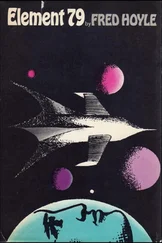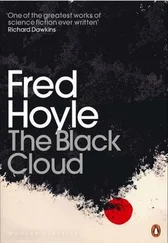“Please Herr Doktor, do not be embarrassed.” Kaufmann smiled at him. “I am quite official. A.1 at Lloyds. I do not compromise you.”
“You didn’t compromise Bridger either, I suppose?” Fleming jerked his head towards the main gate. “That’s the exit.”
Kaufmann smiled again, and pulled out his case of cigarillos. “Smoking?”
“Slightly,” Fleming said, “at the edges. I am not interested in anything you have to offer. Try the next door house.”
“I do that.” Kaufmann laughed and stuck a small cigar between his teeth before they closed. “I do just that. I stop you, Herr Doktor, to tell you that I shall not bother you any more. I have other means, much better, much more honest.”
He smiled again, lit his cigar and walked without hesitation into the vestibule of Geers’s office.
Fleming ran over to the security block, but Quadring was out somewhere, and so was Judy. Finally he got hold of Judy on the telephone, but by the time she reached Geers’s office, the Director was just showing Kaufmann out. The two men seemed to be on most cordial terms, and Geers was smoking one of the cigarillos.
“Businesswise,” Kaufmann was saying, “the process is immaterial. We are not curious; it is the result, yes?”
“We deal in results here.” Geers had his number one smile switched on. He held out a hand. “Auf Wiedersehen.”
Judy watched while Kaufmann shook hands and walked back to his car. As the Director turned to go back into his office she said, “Can I speak to you for a minute?”
Geers flicked his smile off. “I’m rather busy.”
“This is important. You know who he is?”
“His name is Kaufmann.”
“Intel.”
“That’s right.” Geers’s fingers itched at the door handle.
“It was Kaufmann whom Dr. Bridger was selling—” Judy started, but Geers cut her short.
“I know all about the Bridger case.”
Behind his voice Judy could hear the car driving away. Somehow it made what she felt seem terribly urgent: she had to batter it into him.
“It was Intel. They were taking secrets...”
Geers edged into his doorway. “They’re not taking secrets from me,” he said haughtily.
“But—” She followed him in uninvited, and found Dawnay waiting quietly in the office. She felt suddenly thrown and mumbled an apology to the older woman.
“Don’t mind me, dear,” said Dawnay neutrally, and strolled away to the far corner of the room. Geers sat back at his desk and looked at Judy with an air of businesslike dismissal.
“We’re making a trade agreement.”
“With Intel?” The horrifying absurdity of the whole thing crowded in on her: a vision of the piled-up madness of the past months and years. She gaped at him across the polished desk, until she could find words. “I was put on this job because we didn’t trust them. Dr. Bridger was hounded to his death—by me among other people—because he...”
“The climate’s changed.”
She looked at his smug, prim face and lost her temper entirely. “Politicians enjoy such convenient weather!”
“That will be enough,” Geers snapped.
Dawnay rustled quietly in her corner. “The child’s right, you know, and we scientists get a bit jaundiced about it from time to time. We’re at the mercy of the elements. We can’t cheat.”
“I’m a scientist too,” Geers said pettishly.
“Was.” The word slipped out before Judy could stop it. She waited for the explosion, but Geers somehow kept it under control. He went icy.
“It isn’t, strictly speaking, your business. What the Government needs now is world markets. When the girl Andromeda burnt her hands, she worked out a synthesis for Professor Dawnay’s lab people. Have you seen her hands?”
“I saw them burnt.”
“There’s no sign of a burn now. No scar tissue, nothing. Overnight.”
“And that’s what you’re selling to Intel?”
“ Through Intel. To anyone who needs it.”
She tried to think what was wrong with this, and then realised. “Why not through the World Health Organisation?”
“We’re not contemplating wholesale charity. We’re contemplating a reasonable trade balance.”
“So you don’t care who you shake hands with?” she asked with disgust. She felt completely reckless now, and turned on Dawnay. “Are you part of this?”
Dawnay hesitated. “The enzyme’s not quite in a state to market yet. We need a more refined formula. Andre—the girl—is preparing the data for computing.” They had all got into the habit of calling her Andre.
“So the whole station’s working for Intel?”
“I hope not,” said Dawnay, and it sounded as though perhaps she was on her side.
Geers cut in.
“Look, Madeleine, this is enough.”
“Then I won’t waste your time.” Judy moved to the door. “But I am not part of it, and nor is Dr. Fleming.”
“We know how Fleming stands,” said Geers sardonically.
“And you know where I stand too,” Judy told him, and banged out.
Her instinct was to go straight to Fleming, but she could not quite face the risk of another snub. In fact, it was Dawnay who went to see him, on her way from the office block to the computer at the end of the day. She found him in his chalet, watching the Prime Minister’s broadcast on television.
“Come in,” he said flatly, and made room for her on the foot of his bed.
She looked at the flickering blue screen and tried to believe in the confident, elderly, sportive, civilised face and the slow, drawling voice of the Prime Minister.
Fleming sat, and watched and listened with her.
“Not since the halcyon days of Queen Victoria,” the disembodied face announced, “has this country held such a clear lead in the fields of industry, technology and—above all—security as that which we now have within our grasp...”
She felt her attention wandering. “I’m sorry if I interrupted.”
“You didn’t.” He made a grimace at the television. “Turn the old idiot off.”
He rose and switched off the set himself and then mixed her a drink. “Social call?”
“I was just going across to the computer building when I saw a light in your window. Thanks.” She took the glass from him.
“Working overtime?” he asked.
She lifted her glass and looked at him over the top of it. “Dr. Fleming, I’ve said some pretty uncharitable things about you in the past.”
“You’re not the only one.”
“About your attitude.”
“I was wrong, wasn’t I? The Prime Minister says so. Wrong and out.” He spoke more in sorrow than anger, and poured himself a small drink.
“I wonder,” said Dawnay. “I’m beginning to wonder.”
He did not answer, and she added, “Judy Adamson’s beginning to wonder too.”
“That’ll be a big help,” he snorted.
“She put up quite a fight with Geers this afternoon. I must say it made me think.” She took a sip and swallowed it slowly, looking quietly across her glass and turning over the position in her mind. “It seems fair enough to make use of what we’ve got—of what you gave us.”
“Don’t rub that in.”
“And yet I don’t know. There’s something corrupting about that sort of power. You can see it acting on the folk here, and on the government.” She nodded to the television set. “As if perfectly ordinary, sensible people are being possessed by a determination that isn’t their own. I think we’ve both felt it. And yet, it all seems harmless enough.”
“Does it?”
She told him about the enzyme production. “It’s beneficial. It regenerates cells, simply. It’ll affect everything, from skin-grafting to ageing. It’ll be the biggest medical aid since antibiotics.”
Читать дальше












